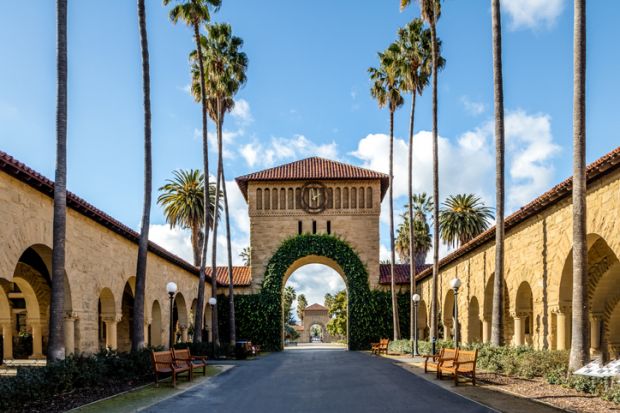Chinese state-run media has used a plagiarism incident involving students from Stanford University to denigrate US research culture, while analysts suggest the episode shows the increasing influence of Chinese science.
Two undergraduates from the top US institution admitted failing to credit Chinese researchers in the development of a new artificial intelligence (AI) model.
Siddharth Sharma and Aksh Garg apologised on social media platform X on 3 June after developers pointed out similarities between their large language model (LLM), “Llama3V”, and “MiniCPM”, an LLM developed by researchers from Tsinghua University.
“We apologise to the authors and are quite disappointed in ourselves for not doing the diligence to verify the originality of this work,” Mr Garg wrote. “It was our duty to verify our work against past research and we failed in that, so we take full responsibility for what happened.”
While the LLM was not linked to Stanford University’s AI department, when reporting on the incident, Chinese government news agency Xinhua said it demonstrated that the US’ technological strengths are “far from omnipotent” and that Silicon Valley, where Stanford University is located, has “cultivated a negative culture”.
The article referenced Elizabeth Holmes, an American entrepreneur notorious for dropping out of Stanford to start a health-tech business, only to later be imprisoned for fraud.
However, experts suggested that the episode highlights China’s scientific progress, rather than being likely to spark a major row.
“This incident is making some splash in [the] Chinese scientific community,” said Li Tang, professor at the school of international relations and public affairs at Fudan University. “In my opinion, it alone is unlikely to exacerbate the ongoing scientific decoupling between China and the US. It reinforces the commitment to domestic AI development and has instilled a sense of pride among many Chinese scholars for their contributions to global AI advancements.”
Research released earlier this year by thinktank MacroPolo found that China was the top producer of AI talent, generating almost half of the world’s top researchers.
“Chinese official media seek to turn this into a propaganda item, but the model is based on US architecture and more generally the borrowing goes in both directions,” said Jeroen Groenewegen-Lau, head of the science technology and innovation policy institute at the Mercator Institute for China Studies. “It is normal practice as long as sources are properly credited.”
However, Jenny Lee, professor of higher education at the University of Arizona, warned that events like these can “damage scientific relations” and could lead China to implement more safeguards “to prevent such violations in the future”.
Concerns about intellectual theft, particularly between China and the US, have grown in recent years, contributing to tense relations between the two nations. A scientific cooperation agreement that has historically been renewed every five years since the 1970s was tentatively extended for a six-month term for the second time in March amid ongoing negotiations.
“While the US, UK, and other Western nations have grown increasingly concerned about intellectual theft from China, this occurrence shows that China too can be subject to theft from the West,” said Professor Lee.
“China has been the global front runner of scientific innovation for many years now, as demonstrated by its lead in global publications, and scientists outside of China are well aware of that.”
Register to continue
Why register?
- Registration is free and only takes a moment
- Once registered, you can read 3 articles a month
- Sign up for our newsletter
Subscribe
Or subscribe for unlimited access to:
- Unlimited access to news, views, insights & reviews
- Digital editions
- Digital access to THE’s university and college rankings analysis
Already registered or a current subscriber? Login









